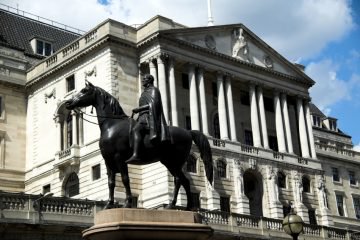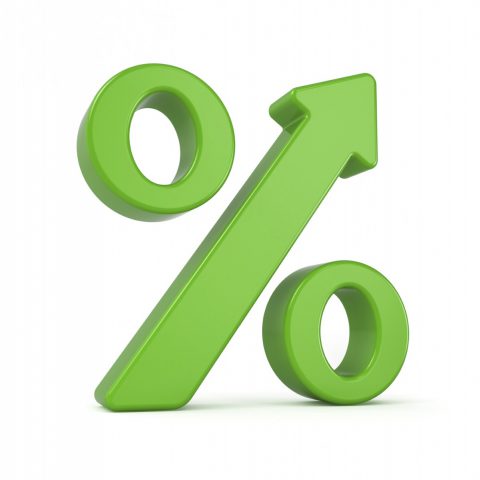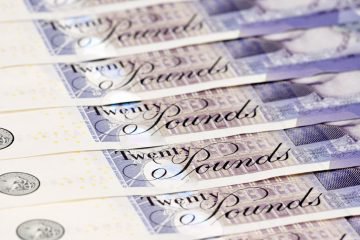BoE Governor Says Interest Rates Could Rise at New Year
The Governor of the Bank of England (BoE) has said that interest rates could start to rise around New Year.
This has been the strongest confirmation that policymakers at the Bank are preparing to act, as Mark Carney claimed that the decision to raise interest rates was likely to arrive at the end of this year.
For savers, this will provide long-awaited relief, as their returns have plummeted due to the financial crisis.
However, borrowers will have to pay more on their mortgage and credit card bills. The increase could also affect the housing market.
The BoE base rate is the rate that the Bank charges to banks and building societies. Carney expects this to increase slowly over the next few years.
At the present 0.5% – a record low for the past six years – it will rise gradually in the next three years and peak at around 2.5%, around half the historical average.
In a speech in Lincoln, Carney said: “The need for the base rate rise reflects the momentum in the economy and a gradual firming of underlying inflationary pressures.
“In my view, the decision as to when to start such a process of adjustment will likely come into sharper relief around the turn of this year.”
He stressed that it is almost time to act, as he said that any action taken by the BoE to steady the economy by increasing interest rates would take around 18 months to take effect.
Carney assured borrowers that any increases “would proceed slowly” and that the nine policymakers at the BoE who set interest rates would take a “feel its way as it goes” attitude to tightening policy, which will depend entirely on data.
Rates are expected to “rise to a level in the medium term that is perhaps about half as high” as the historical average of 4.5%, he said, but it will not be “mechanical”, “linear” or “predetermined.”
“Shocks to the economy and shifts in the exchange rate, for example, could easily adjust the timing and magnitude of interest rate increases,” said Carney. “Growth in the parts of the global economy that matter most to the UK is running 0.75 percentage points below its historic average.”
BoE policymaker, David Miles, said recently that it would be a “bad mistake” if policymakers wait too long to increase interest rates.1
Carney has informed MPs that UK interest rates were forecast to rise around half the pace of the US, in part due to British households being more vulnerable to the impact of higher rates.
Bank data reveals the proportion of people taking out fixed rate mortgages when purchasing a property has grown to 77% of all new UK lending, compared to 45.9% at the start of 2008.
However, the majority of homeowners with existing mortgages remain on a variable rate deal, with 57% of outstanding loans on a changeable rate.
Carney said on Tuesday that the BoE would observe developments “very closely.”
He told the Treasury Select Committee: “We will learn about sensitivity as rates begin to adjust.”
Inflation, measured by the consumer price index (CPI), dropped to 0% in June, below the BoE’s 2% target.
However, this does match the Bank’s expectations and policymakers predict that inflation will grow to over 1% by the end of 2015.
Carney told UK households to enjoy low prices “while it lasts.”1
This news arrives as house prices have reached a record high. In June, property owners and buyers reacted to the Conservative general election win by borrowing at the fastest rate for seven years.
Economists believe there was a surge in optimism as people realised their plans that were delayed due to election uncertainty.
According to official figures, the average property price in England and Wales increased by 1.1% between May and June to £181,619.
The previous high recorded by the Land Registry was £180,983 in 2007.
Separate data reveals that this growth coincides with a substantial rise in the amount of money borrowed as mortgage debt.
Borrowing increased to £20.5 billion in June, a 29% monthly rise and the highest level for that month since 2008.
Economist for the Council of Mortgage Lenders (CML) – that compiled the data – Mohammed Jamei, says the June figures were “flattered” by the end of election doubt.1
Housing Economist at Halifax, Martin Ellis, adds that there was a “noticeable spike in optimism” after the result.
He continues: “A key factor in maintaining optimism over house price growth has been the fact that the stock of homes available for sale is currently at record low levels.
“If this growth is to be sustainable then we need to see a comprehensive house building plan rolled out across the UK.”1
However, experts warn that once this election bounce is out of the way, the pace of growth will calm down.
Head of Lending at the Mortgage Advice Bureau (MAB), Brian Murphy, concludes: “Homeowners are still benefitting from a significant uplift in the value of their properties, but there are encouraging signs that the market is returning to a more stable footing.”1




